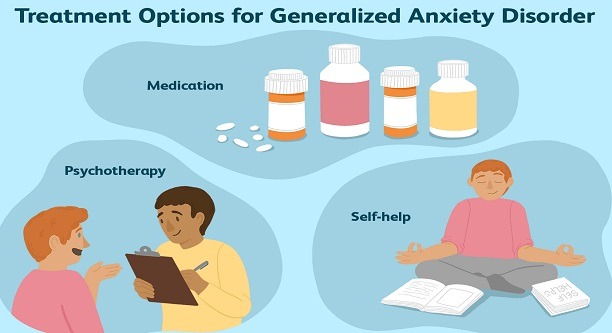
- What are 3 treatments for anxiety?
- What is the best treatment for anxiety disorder?
- What is the first treatment for anxiety?
- What are the two main treatments for panic disorder?
Anxiety disorders are among the most common mental health conditions worldwide, affecting millions of people. These conditions are characterized by persistent feelings of fear, worry, or anxiety that interfere with daily life. Fortunately, there are several effective treatments available for anxiety disorders. In this article, we will discuss the two main treatments for anxiety disorders: psychotherapy and medication.
Psychotherapy for Anxiety Disorders
Psychotherapy, also known as talk therapy, is a type of treatment that involves talking with a mental health professional to identify and address the underlying causes of anxiety. There are several types of psychotherapy that can be effective for anxiety disorders, including cognitive-behavioral therapy (CBT), exposure therapy, and acceptance and commitment therapy (ACT).
Cognitive-behavioral therapy (CBT) is the most widely used and studied form of psychotherapy for anxiety disorders. It is a structured, short-term therapy that aims to help individuals identify and change negative thought patterns and behaviors that contribute to their anxiety. In CBT, the therapist works with the individual to challenge their negative thoughts and beliefs, and replace them with more positive, realistic ones.
Exposure therapy is another type of psychotherapy that is often used to treat anxiety disorders, particularly phobias and post-traumatic stress disorder (PTSD). This therapy involves gradually exposing the individual to the object or situation that triggers their anxiety, allowing them to confront and overcome their fears. This exposure can be done in real-life situations, or through the use of virtual reality technology.
Acceptance and commitment therapy (ACT) is a newer form of psychotherapy that has been found to be effective for anxiety disorders, particularly generalized anxiety disorder (GAD). This therapy focuses on helping individuals to accept their anxious thoughts and feelings, and to learn strategies to live a meaningful life despite their anxiety.
Overall, psychotherapy is a highly effective treatment for anxiety disorders. It has been found to be just as effective as medication for many people, and has the added benefit of teaching individuals coping skills that they can use throughout their lives.
Medication for Anxiety Disorders
Medication can also be an effective treatment for anxiety disorders, particularly when used in combination with psychotherapy. There are several types of medication that can be used to treat anxiety disorders, including selective serotonin reuptake inhibitors (SSRIs), benzodiazepines, and beta blockers.
Selective serotonin reuptake inhibitors (SSRIs) are a type of antidepressant medication that is often used to treat anxiety disorders. These medications work by increasing the levels of serotonin in the brain, which can help to regulate mood and reduce anxiety. SSRIs are often used to treat generalized anxiety disorder, panic disorder, and obsessive-compulsive disorder (OCD).
Benzodiazepines are another type of medication that is often used to treat anxiety disorders. These medications work by enhancing the activity of a neurotransmitter called gamma-aminobutyric acid (GABA), which can help to reduce anxiety. Benzodiazepines are typically used for short-term treatment of anxiety, as they can be habit-forming and can lead to dependence.
Beta blockers are a third type of medication that can be used to treat anxiety disorders. These medications work by blocking the effects of adrenaline, which can help to reduce physical symptoms of anxiety such as rapid heartbeat and sweating. Beta blockers are often used to treat performance anxiety, such as before a public speaking event.
While medication can be an effective treatment for anxiety disorders, it is important to note that it is not a cure. Medication can help to manage symptoms, but it does not address the underlying causes of anxiety. Additionally, medication can have side effects, and can be expensive and difficult to access for some individuals.
Conclusion
Anxiety disorders are common and can have a significant impact on an individual’s.




